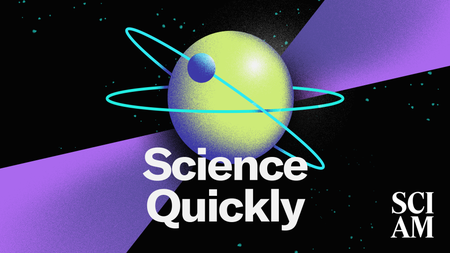
The Danger of Hurricane Downpours and the End of ‘Climate Havens’
Downpours from hurricanes are worsening—and leaving even “climate havens” vulnerable.
Fonda Mwangi is a multimedia editor at Scientific American. She previously worked as an audio producer at Axios, The Recount and WTOP News. She holds a master’s degree in journalism and public affairs from American University in Washington, D.C.

The Danger of Hurricane Downpours and the End of ‘Climate Havens’
Downpours from hurricanes are worsening—and leaving even “climate havens” vulnerable.
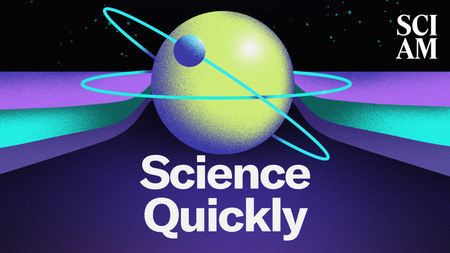
Stem Cell Treatments for Diabetes and a Dolphin’s Smile
We cover the spread of Marburg virus, a stem cell treatment for diabetes and the way dolphins smile in this week’s news roundup.
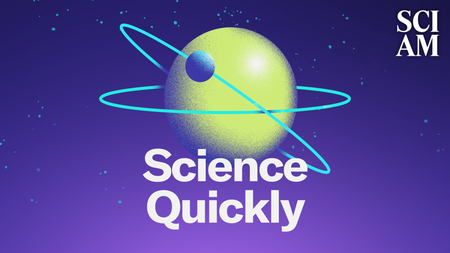
Infinite Tiling Presents a Modern Mathematical Challenge
Today’s mathematicians grapple with higher-order mathematical questions and real-world applications.

Understanding Suzetrigine, a New Drug That Treats Pain at the Periphery
A new class of drugs treats pain at the periphery. Here’s what that could mean for those with chronic pain.

An Effort to Fight against the Spread of Misinformation in Science and an Overwhelming Number of Plastic Water Bottles
Here’s how misinformation and distrust in science are impacting global well-being. Plus, we present our regular roundup of this week’s science news.

Is Math Part of Nature or an Invention of the Mind?
Mathematics communicator and drag queen Kyne Santos guides you through the ongoing debate about what math really is.

People with PCOS Face Increased Eating Disorder Risks
A study reports higher prevalence of eating disorders among people with polycystic ovary syndrome, regardless of their body mass index.

How Pregnancy Changes the Brain, and How Lizards Make DIY Scuba Gear
This week’s news roundup explores how the brain is affected by pregnancy, the way “scuba diving” lizards breathe underwater, and much more.

Finding Math’s Beauty and Power with Drag Queen Kyne Santos
Mathematics communicator and drag queen Kyne will help you discover the beauty and power of math in this miniseries.

Black Men Should Start Prostate Cancer Screening Earlier
According to the American Cancer Society, Black men are about 70 percent more likely than white men to develop prostate cancer in their lifetime and twice as likely to die from the disease.
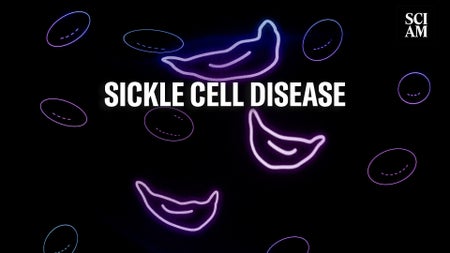
What Is Sickle Cell Disease?
You have around 35 trillion red blood cells moving around your body at all times. Typically they are rounded and flexible. What happens when they aren’t?

AI Takes on Conspiracies; Massachusetts Tackles Trash
AI fights conspiracy theories, Massachusetts leads the way on waste reduction, and more in this week’s science news roundup

See the Skies Differently with Astronaut and Photographer Matthew Dominick
NASA flight engineer Matthew Dominick’s astrophotography helps us see our world—from space

How Forensic Breakthroughs Are Still Helping Identify 9/11 Victims Today
Forensic scientists are still working to identify victims of the 9/11 attacks using advancements in technology and techniques developed over the past two decades.

Jellyfish Clones Swarm British Columbian Lakes, and Measles Cases Spike in Oregon
This week’s news roundup: Jellyfish clones are multiplying in British Columbia’s lakes, measles cases are on the rise in Oregon, and a new study finds cell phones aren’t linked to brain cancer.

Balancing Long-Term Caregiving with Personal Well-Being
Caring for aging loved ones brings its own set of emotional and physical hurdles. Experts offer guidance on finding support.
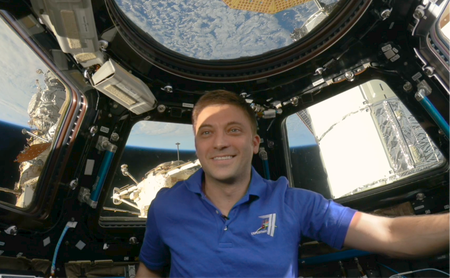
Watch the First-Ever Interview from the ISS Cupola
NASA astronaut Matthew Dominick speaks with Science Quickly host Rachel Feltman about how he captures jaw-dropping images from space

Discrimination Could Be Making People of Color Age Faster
Understanding how racism affects aging and the timing of menopause could lead to better screening and preventive care.

Navigating the Struggles and Joys of Caring for Aging Loved Ones
Personal stories and research reveal the challenges of family caregiving.

The Pitfalls of Houseplant Collection
A curator at the New York Botanical Garden explains what we can learn about the past and the present from houseplant trends.

NASA’s Perseverance Rover Ascends, Ozempic Is Linked to Depression, and Mpox Cases Spread Rapidly
We cover Mars mission updates, a new brain implant that shows promise for Parkinson’s, the latest on the mpox outbreak, and more in this week’s new roundup.

What a Linguist Hears when Kamala Harris Speaks
A sociophonetician explains presidential candidate Kamala Harris’s intonational patterns and the way that the properties of candidates’ speech influences how they are perceived.

‘Dark Oxygen’ from Seafloor Deposits Perplexes Researchers
Polymetallic blobs are producing “dark oxygen” from the depths of the ocean—and no one knows exactly how.

James Cameron’s OceanXplorers Shows Scientists at Work
James Cameron takes us behind the scenes and beneath the waves in a discussion of the new National Geographic show OceanXplorers on today’s episode of Science Quickly.